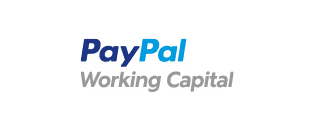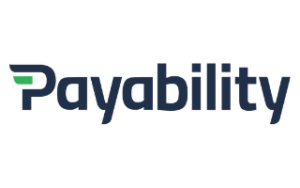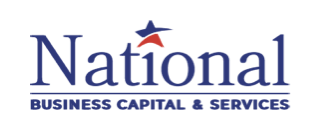💸 See if your business qualifies for a tax credit worth up to $26k per employee. 📞 Call Now: 855-979-9597
10 Best Startups Loans for Bad Credit in 2023
Data as of 12/6/22. Offers and availability may vary by location and are subject to change.
We are committed to sharing unbiased reviews. Some of the links on our site are from our partners who compensate us. Read our editorial guidelines and advertising disclosure.
Getting approved for a business loan can feel like a challenge at the best of times. And when you’ve got a bad credit score and a relatively new startup? It can feel impossible. Plenty of lenders won’t even consider you.
Some lenders will, though―and we’ve rounded up the best of those. The lenders on this list will consider businesses that have been around for a year or less along with credit scores in the “poor” range (less than a 580 FICO score).
We’ll tell you now that Lendio is the best choice for most businesses (because it gives you the most options). We’ll tell you more about it as well as other lenders with low or no credit score requirements along the way.
Let’s find you a loan.
- : Best overall startup business loan for bad credit
- : Best for 0% interest
- : Best for low rates
- : Best for Square users
- : Best merchant cash advance
Compare the best bad credit business loans
Data as of 12/6/22. Offers and availability may vary by location and are subject to change.
How to improve your credit score
We hope you’re able to get a small-business loan from one of the lenders above. But we also want you to qualify for better loans and better rates in the future. And if you want to do that, you should start working on your personal credit score now.
Some simple financial practices can make a big difference.
For example, the most obvious way to help your credit score is to simply pay your bills on time. So make timely payments on your business loan and any other debts you have.
If possible, try to lower your credit utilization ratio―a fancy way of comparing the amount you borrow to your total credit limit. So if you’ve got a $10,000 limit on a credit card, try to keep your balance well below that limit (like below $3,000).
And finally, simply wait a while. The length of your credit history can make a big difference. So the longer you have accounts open (and the farther in the past late payments get), the better your credit score should be.
By signing up I agree to the Terms of Use.
Lendio: Best overall bad credit business loan for startups
Data as of 12/6/22. Offers and availability may vary by location and are subject to change.
Unlike every other company on this list, Lendio is not technically a lender. It’s a lending marketplace.
So when you submit a loan application, Lendio shops around for you to find loan offers. Then it lets you compare your offers and decide which (if any) application you want to move forward with.
Lendio offers a wide range of both lenders and financing types. We can’t promise that all those lenders and loan options will work for startups with bad credit (some definitely won’t), but Lendio has quite a few options that fit the bill.
In fact, you can get matched with many of the lenders reviewed below―which is why we think Lendio is the place to apply with. (Note, though, that matchmaking takes time, so you may get funding faster by applying directly with lenders.)
Put simply, Lendio’s loan matchmaking can help you get the best possible loan for your specific borrower qualifications. That makes it our favorite source for bad-credit startup loans.
Kiva: Best for 0% interest
Data as of 12/6/22. Offers and availability may vary by location and are subject to change.
Kiva offers something you won’t find from almost any other lender: no interest.
You read that right. Kiva doesn’t charge interest on any of its small-business loans. And to sweeten the deal, Kiva doesn’t care about your credit score or how long your startup has been around. It uses a (long) crowdfunding process, so you need a good pitch more than you need a good credit score. That makes Kiva loans surprisingly accessible.
There is, as you’ve probably guessed, a catch or two. Kiva offers very small business loans, with a maximum loan size of $15,000. That may not be enough money for your business. Kiva also requires you to crowdfund your loan―a process that takes at least one month. That may be too long if you need money quickly.
In other words, the small loans and long funding process mean Kiva won’t work for all businesses―but the low requirements and cheap funding make it worth looking at.
Accion Opportunity Fund: Best for low rates
Data as of 12/6/22. Offers and availability may vary by location and are subject to change.
For businesses that simply want competitive interest rates, Accion Opportunity Fund is a good pick.
Accion Opportunity Fund offers business loans with rates well under 10%, making it one of the cheaper online lenders out there―and definitely the cheapest one for young businesses with bad credit (outside of Kiva). Because Accion Opportunity Fund wants to reach disadvantaged business owners that couldn’t normally access loans, it doesn’t care too much about your credit score.
That said, Accion Opportunity Fund will consider your credit score―or your revenue and time in business. And that consideration can take time. While plenty of online lenders offer near-instant decisions, Accion Opportunity Fund isn’t one of them. Remember, too, that 5.99% is just a starting rate. Your actual rate will likely end up higher, especially with a low credit score.
Even so, Accion Opportunity Fund has competitive rates and accessible requirements―and that makes it a lender worth applying with.
Square Capital: Best for Square users
Data as of 12/6/22. Offers and availability may vary by location and are subject to change.
Do you use Square to process credit cards? Then you’ll want to know about Square Loans. (If you don’t already use Square, just skip ahead.)
Square offers loans exclusively to its existing customers. It bases eligibility off of your credit card processing history―not your credit score or business age. And as an added perk, Square can fund you very quickly. Once you get a loan offer, you can get approved within one day and funded shortly after that.
While Square’s rates do leave something to be desired, the biggest problem comes down to eligibility. Square automatically decides whether or not you’re eligible for a loan offer―there’s no way to manually open an application. That makes Square great if you already happen to have a loan offer from it―but pretty worthless if you don’t.
Put simply, don’t sign up for Square because you want a Square Capital loan. If you use Square anyway, though, its small-business loan could work for you.
Lendr: Best for merchant cash advances
Data as of 12/6/22. Offers and availability may vary by location and are subject to change.
Think you want a merchant cash advance? We’d go with Lendr.
Here’s the thing: We don’t like merchant cash advances much (they come with a confusing fee structure and high rates). But Lendr has better reviews and more transparency than other MCA companies do. Plus, Lendr gets really positive customer reviews, and it gives you the choice of either merchant cash advances or invoice factoring.
That doesn’t make Lendr perfect. It still has all the cons of any cash advance company―namely high costs that get described in a confusing way. So we do suggest trying to get other kinds of financing first.
If you decide you want a merchant cash advance, though, Lendr’s our favorite source.
Honorable Mentions
Honorable mentions startup loans for bad credit
- : Best for PayPal users
- : Best for Stripe users
- : Best for e-commerce
- : Best customer reviews
- : Another lending marketplace
Compare honorable mention startup loans for bad credit
Data as of 12/6/22. Offers and availability may vary by location and are subject to change.
PayPal Working Capital: Best for PayPal users
Data as of 12/6/22. Offers and availability may vary by location and are subject to change.
As the name suggests, PayPal Working Capital is exclusively for businesses that use PayPal to process payments.
In fact, your “creditworthiness” mostly depends on the volume of PayPal sales you have. PayPal doesn’t care about your credit, and you need to have used PayPal for just three months to qualify. If you get approved, PayPal automatically takes a percentage of your PayPal sales until you’ve repaid the loan.
We don’t think you should start using PayPal just to get one of these loans. But if you already take payments with PayPal, you might like this convenient option.
Stripe Capital: Best for Stripe users
Data as of 12/6/22. Offers and availability may vary by location and are subject to change.
Stripe Capital rounds out the payment-processor trifecta. Like PayPal Working Capital and Square, Stripe Capital only lends to Stripe users―and it makes decisions based on your Stripe sales instead of your credit score or other factors.
Stripe keeps its loan details pretty hush-hush though, so make sure you understand what you’re agreeing to before you take out a loan.
While Stripe Capital will never be our first pick for most businesses, it offers accessible funding for Stripe customers.
Payability: Best for e-commerce sellers
Data as of 12/6/22. Offers and availability may vary by location and are subject to change.
Payability is a merchant cash advance company for the e-commerce age. It works with online sellers on marketplaces like Amazon, Walmart, and ebay. To see if you qualify, Payability checks your selling history (rather than your credit score).
Instead of interest, Payability uses weekly fees. That can make it decently affordable if you repay your advance quickly―or shockingly expensive if you don’t.
So Payability can offer a good way to boost your e-commerce business, but make sure you budget carefully.
Forward Financing: Best customer reviews
Data as of 12/6/22. Offers and availability may vary by location and are subject to change.
If you trust what other business owners have to say, you’ll probably like Forward Financing. Forward Financing gets top-notch reviews from users. Since we first reviewed it, it’s kept a 4.9 out of 5 on Trustpilot.1 That’s one of the best scores we’ve seen for a lender.
The downside? Forward Financing has just merchant cash advances―and it doesn’t even list pricing for them
Still, Forward Financing works with young businesses and low credit scores, and the customers love it. Maybe you will too.
National Business Capital: Another lending marketplace
Data as of 12/6/22. Offers and availability may vary by location and are subject to change.
If you like the idea of Lendio’s lending marketplace but aren’t sold on Lendio specifically, National Business Capital gives you an alternative option. Like Lendio, it shops your application around to different lenders to try to get you a great deal.
The good thing about National Business Capital? It doesn’t have a minimum credit score. The bad thing? It has higher revenue requirements than Lendio. (Also, it’s cagey about things like interest rates and fees.)
So while National Business Capital isn’t our top pick, it’s another marketplace worth knowing about.
The takeaway
We won’t lie: you might have a hard time getting a startup business loan when you have low or bad credit. But with the loan providers above, you’ll at least have a chance.
In most cases, we recommend starting your search with Lendio so you can compare loan offers and get as many options as possible.
Still, if you want to try for no interest or at least very low interest, you may prefer Kiva or Accion Opportunity Fund, respectively. Square customers will like the ease of Square Loans. And if you’re mostly seeking a merchant cash advance, Lendr has you covered.
You know about your personal credit score—but what about your business credit score? Learn more about how to build business credit (and why it matters).
Related reading
Methodology
We began by researching more than 50 lenders, which we narrowed down to just those that offered loans to business owners with bad credit (FICO scores under 600) and young startups (less than two years old). Then we scored the remaining lenders on loan costs, loan amounts, funding times, and more. We used each lender’s final score to rank and review it for this article.
Bad-credit startup loan FAQ
It is possible to get a business loan with a personal credit score of 500, but you’ll have higher interest and fees than you would with a better credit score. And keep in mind, only a handful of lenders will consider your application.
Of the lenders reviewed above, Forward Financing accepts a minimum credit score of 500, while Kiva, PayPal Working Capital, Square Capital, and Stripe Capital don’t even do a credit check. So if you’ve got a 500 credit score, those lenders will be your best bets.
Getting startup financing with bad credit will likely be a challenge, since credit score and business age are two of the biggest factors lenders look at. So if you want to improve your chances of getting approved, you need to make sure you have an otherwise strong application.
For example, if your business has really high annual revenue (good job!) then you’re much more likely to get approved even with a bad credit score. Likewise, if you can get a cosigner who has strong credit, you can increase your chances of getting a loan.
You can also improve your odds by going with the right lender. You'll have more luck with an alternative lender (a.k.a. an online lender) than a traditional lender (a bank or credit union). Alternative lenders tend to have lower borrower requirements than traditional lenders do.
Can you get an SBA loan with bad credit?
Unfortunately, no, you can’t get an SBA loan if you have poor credit. They generally require a good credit score. Take SBA 7(a) loans, for example. You need a 680 credit score (a good FICO score) to qualify.
Some SBA loans, like SBA microloans, may accept a lower credit score. But even these usually require a score in the fair range―not one considered “poor” on the FICO scale.
What are the best business loan alternatives?
If none of the loans above will work for you, you can always try funding your business another way.
Crowdfunding
With crowdfunding for startups, your credit score doesn’t matter at all―and neither does the age of your startup business. All that matters is that you have a compelling pitch that makes people want to pledge money.
Investors
If you’re willing to give up a little equity, you can also consider finding investors. We can’t promise that investors won’t care about your credit score or time in business―some definitely will―but they may be willing to overlook those factors if you have a solid business and a great plan.
To get the big bucks, you’ll want to seek out angel investors or venture capitalists. But if you don’t need a ton of money, you might want to ask around your social circle.
You just might find a family member or friend who’s willing to invest in your startup.
Grants
Finally, you can try to apply for grants. Grants give you free money for your business, but they’re often very competitive, and the amounts can be quite small sometimes.
To up your odds of winning a grant, look for grants with niche application requirements. For example, you’ll likely have less competition if you apply for small-business grants for women instead of general business grants. And you’ll have even less competition if you apply for a business grant for women in Omaha, Nebraska.
Disclaimer
At Business.org, our research is meant to offer general product and service recommendations. We don't guarantee that our suggestions will work best for each individual or business, so consider your unique needs when choosing products and services.
Sources
Trustpilot, “Forward Financing.” Accessed December 6, 2022.











